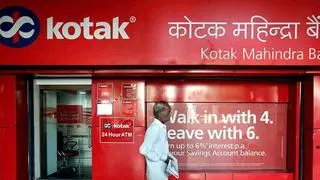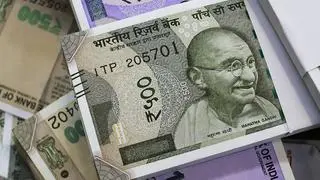In a surprise move, several top banks forming part of the Committee of Creditors (CoC) in the erstwhile DHFL’s resolution matter have knocked the doors of the Supreme Court in appeal against the recent NCLAT order that had given the entire set of financial creditors a seemingly better deal than what the CoC had agreed for in the resolution plan.
The banks that went for an appeal against the NCLAT’s January 2022 order include Union Bank of India (on behalf of itself), State Bank of India, Bank of India, Canara Bank, Punjab National Bank and the Central Bank of India, sources close to the development said. They have sought the Apex court’s intervention to set aside the NCLAT order. The appeal’s hearing is slated for March 21, they added.
Related Stories
DHFL Resolution: SC to hear Piramal Group’s appeal on Friday
Piramal Group had moved the apex court against NCLAT ruling in the 63 moons challenge63 moons’ challenge
It may be recalled that the NCLAT had — in the matter of the 63 moons challenge — in January 2022, set aside the term in the DHFL resolution plan that permitted Piramal Group (successful resolution applicant) to appropriate recoveries from avoidance transactions.
The resolution plan proposed by Piramal Group to take over DHFL had provided that the recoveries from avoidable transactions ( estimated at about ₹40,000 crore) would be appropriated at an ascribed value of ₹1 by the winning resolution applicant (Piramal Group). The CoC had agreed to this term in the resolution plan, but 63 moons, which is a NCD holder in DHFL to the tune of ₹200 crore challenged this part of the resolution plan before the NCLAT.
The recent NCLAT order ruled as “illegal” the stipulation in the DHFL resolution plan as regard to recovery of avoidance transactions going to the winning resolution applicant.
NCLAT had noted that all recoveries on avoidance transactions should go for the benefit of only the creditors and not the successful resolution applicant. It also noted that, in bidding for DHFL, the Piramal group had not factored in any recoveries from avoidance transactions. In fact, it was argued that there would be a minimal recovery and, hence, a value of one rupee was ascribed to this large outstanding.
Under the IBC, “avoidance transactions” are recognised as undervalued, fraudulent or extortionate by the previous promoters.
Already Piramal Group, which had acquired DHFL last September, had filed an appeal in the Supreme Court on February 16 and the case was registered on February 25. The RBI appointed administrator for DHFL, committee of creditors and 63 moons have been listed as respondents to this appeal.
NCLAT had, in the 63 moons challenge order in January, sent the authorised resolution plan back to the Committee of Creditors (CoC) to reconsider this aspect of the valuation of avoidable transactions that pertain to the recoverable belongings.
Meanwhile, many corporate observers wondered as to why banks are now preferring a challenge to the NCLAT order when they stand to gain an astronomical sum as a result of this order. They were at a loss to understand as to why Indian banks are happy with ₹1 when they could potentially recover to themselves thousands of crore in the years ahead on account of avoidable transactions.









Comments
Comments have to be in English, and in full sentences. They cannot be abusive or personal. Please abide by our community guidelines for posting your comments.
We have migrated to a new commenting platform. If you are already a registered user of TheHindu Businessline and logged in, you may continue to engage with our articles. If you do not have an account please register and login to post comments. Users can access their older comments by logging into their accounts on Vuukle.